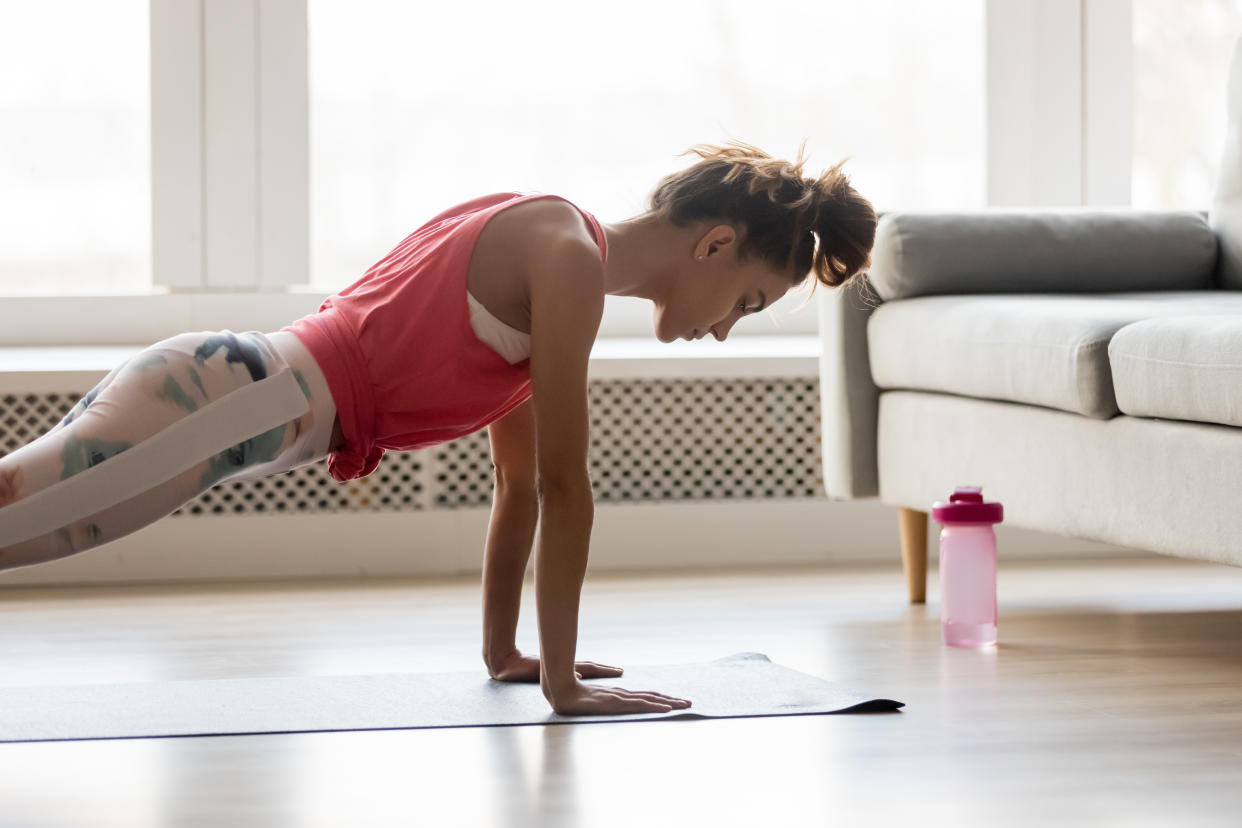Coronavirus: How to stay physically and mentally strong during lockdown

words by Alexandra Thompson
The coronavirus pandemic is an unprecedented event in all of our lives.
With the UK on lockdown, Britons are only permitted to leave their home for “very limited purposes”, like shopping for essentials.
Officials have also made it clear we are not to socialise with anyone outside of our household.
With cabin fever setting in, many understandably feel stressed, anxious and isolated from their loved ones.
To help people stay physically and mentally well, the World Health Organization has launched its HealthyAtHome campaign.

Coronavirus: How to stay fit while stuck at home
Exercising makes up one of the few reasons Britons are permitted to leave their home amid the outbreak.
While venturing out raises the odds of becoming infected, the physical and mental benefits of going for a walk, run or cycle outweigh the risk.
Research has repeatedly shown active people are at a lower risk of everything from type 2 diabetes and heart disease to depression and even certain cancers.
Officials have stressed a safe distance must be maintained with passersby, particularly if you have the coronavirus’ tell-tale fever or cough.
“It is perfectly possible to exercise once a day and pose no risk to others or yourself,” said Professor Keith Neal from the University of Nottingham.
With Britons being told to work from home if they can, many of us may be spending more time sat down.
While it may not sound like much, just three minutes of stretching or walking around the room can help relax tight muscles and get circulation going.
People setting up office at home may also not have a proper desk chair.
Check your posture throughout the day. When sat at a desk, your knees should be slightly lower than your hips, use a foot rest if needed. Your wrists and forearms should be straight and level with the floor.
If you have the space, consider an online exercise class, dancing to music or skipping rope.
Gamers may also be pleased to hear some consoles require you to get active while completing the quest. To protect your mental health, try not to spend longer playing video games than you normally would.
Officials also recommend people do strength and muscle training. This can be low-impact, like yoga or tai chi.
Healthy adults should aim to be active for 30 minutes a day, while children should move for an hour.
Try not to beat yourself up if this cannot be achieved every day, any activity is better than none – even walking up the stairs counts.

Coronavirus: How to stay mentally strong during lockdown
Almost all of us have had to adjust our routine amid the coronavirus outbreak.
Whether it’s financial worries, the stress of home schooling children or anxiety about catching the infection itself, the pandemic may be taking its toll on your emotional wellbeing.
Remember it is natural to feel this way and for most the feelings – like the pandemic – will pass.
Keeping informed of the latest goings on may help you feel less in the dark. This is also important to ensure you are aware of the up-to-date recommendations.
If this makes you anxious, opt for trusted news sites and check in just once or twice a day.
As much as possible, try and stick to a normal routine.
This includes going to bed and waking up at the same time every day, as well as continuing to shower and eat at set times.
While seeing friends face-to-face is temporarily off limits, keep in touch via phone calls, emails and social media.
Social media can also be used to share feel-good stories, like the 100-year-old war veteran who has raised millions for the NHS by doing 100 laps of his garden.
If possible, check in with people who live or alone or who you suspect may be struggling. Ensure they have the supplies they need.
Share any concerns with a loved one or mental-health helpline if it becomes overwhelming.
Do not turn to alcohol or drugs to help you cope with any heightened anxiety. In the long term this will make it worse and runs the risk of addiction.
Meditation or mindfulness may help you process the emotions you are feeling.
It is also important to get plenty of sleep. Reading a relaxing book, avoiding caffeine late in the day and ensuring your bed is comfortable all help people nod off.
When working from home, limit the amount of time you spend in front of the screen every day.
It is also important to keep your mind active and do things you enjoy, whether it be a crossword, jigsaw puzzle or virtual pub quiz.
“If you’re feeling very anxious, practice some self-care with whatever works for you – going for a walk, having a long bath – to reset an anxious mind,” said Dr Meg Arroll chartered psychologist for Healthspan.
Parents may be particularly worried about how their children are adjusting to the lockdown.
Try and discuss, in an age appropriate way, what is happening.
“You might be tempted to try and skirt around the issue, telling them, 'oh, you don't need to know about that' in order to safeguard their feelings and worries,” said Dr Zoi Nikiforidou from Liverpool Hope University.
“Like it or not, Coronavirus conversations will be going on around your children and by not addressing it you're creating a breeding ground for fear and misunderstanding.”
Dr Nikiforidou recommends asking children what they already know about the pandemic and using reassuring language.
You could also encourage them to express their emotions via drawing, writing a poem or singing.
Find out more about the WHO's recommendations for staying healthy during lockdown.

 Yahoo Movies
Yahoo Movies 
